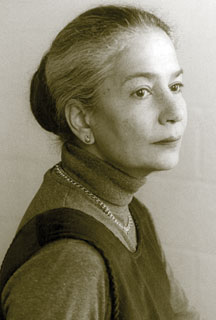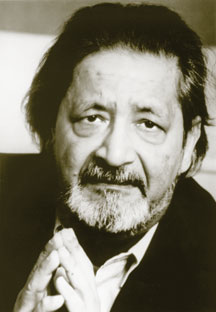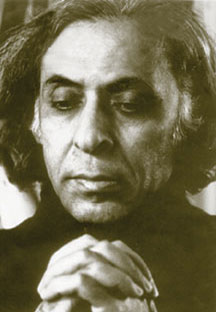Arts
How Indian Is Indian Writing In English?

|
The next time you walk into a bookstore to browse English books penned by Indian authors, try this little game. Turn to the author biography to see which continent he currently calls home. If you are pondering established names on the literary scene, chances are that nine times out of ten, you will hit upon the phenomenon of the Indian English writer in self-imposed exile.
What is it that makes the most talented of India’s literary geniuses steer clear of Indian shores to settle down in foreign lands? Is it the promise of fame, recognition and money that comes from catering to the western market with a much wider reader base? Or is it the ennui of having to pander to Indian readers, still far behind in terms of cultural and literary sophistication than their western counterparts? Or is it something much less sinister? Do these writers move away from the land that sparks their stories to achieve a heightened sense of intimacy and observation that distance is known to create? Or are we totally wrong about the causality? Perhaps the writers decide in favor of foreign lands for reasons not even remotely connected with their scribal calling. And perhaps we have as much talent at home as scattered all over the globe, and it is just the increased visibility rendered by the western marketing spotlight that beguiles us into believing otherwise. At least that is what Anita Desai would have us believe. In response to Nobel Prize winning author V.S. Naipaul’s allegation that Indian Writers in English (IWE’s) are responsible for creating a body of literature in exile mainly written by writers and read by readers living abroad, the US-based Desai (who has been nominated thrice for the Booker and who moved outside India only in her 50s when she was already an established author) said that it was not entirely true. In her opinion, English books have an international readership. Just
like IWE’s abroad who draw upon their international experiences to write books for the Indian migrant community, there are IWE’s back in India who may be little known elsewhere, but who concoct stories with a regional flavor for Indian readers. Desai’s reassurances however do not help when confronting the skewed ratio of prizes and honors claimed by Indian English writers in exile against those won by the writers living at home. The roster of Nobels, Bookers, Pulitzers, Whitbreds and Gillers shows the predominance of the former over the commercially marginalized latter. There is an occasional Arundhati Roy, but the promise soon dies out from lack of substantiation in the form of the emergence of other path-breaking native Indian writers in English. In an interview with William Dalrymple prior to the release of the Booker-winning The God of Small Things, Arundhati Roy pointed out the chasm between her and her contemporaries, who mostly belong to the young emerging breed of Doon School and Oxbridge University educated writers preferring to live outside India. Altaf Tyrewala, the author of No God In Sight, avers that he cannot imagine himself living in the First World and writing about the Third, traveling for a month or so to India to gather material on which to base his writing. In doing so, Tyrewala acknowledges the existence of other writers who do so. Tishani Doshi, author of The Pleasure Seekers holds a similar opinion on the issue of Indian writers residing abroad while writing a work of fiction based in the subcontinent – that it makes the process difficult and the writing stilted. To counter the mud-slinging by the natives, the IWE’s abroad resort to drastic measures. Burdened by being tagged an IWE, they much
prefer to steer clear of their Indian roots and limit the references of Indianness only in their works. Hari Kunzru, author of The Impressionist and Transmission claims that he is not an Indian writer but a British one, thus categorically denying any claim that Indians may make of him being an IWE. There is no way of arguing against Kunzru’s stand, especially when we erroneously claim foreign authors writing about India such as Mark Tully, Dominique Lapierre and William Dalrymple as our own, as well as Indian writers settled abroad like Naipaul, Salman Rushdie, Vikram Seth, Hari Kunzru and the Desais. The feeling of alienation is only heightened when Indians fail to appreciate literature on the home turf, looking towards the West for ratification of genuine talent flourishing in India. At a reception organized at Santiniketan to pay homage to Rabindranath Tagore’s literary genius after he had been awarded the Nobel Prize in Literature, Tagore said, “The insult and infamy that was my lot to suffer at the hands of my country were not inconsiderable in quantity and so long I had borne them with patience. In this context, I have not been able to understand clearly why I received honor from outside. I did not know that God, whom I had offered homage sitting on the Eastern shore, would extend his right arm in the western shore to accept the same… Europe has given me the garland of honor. If it carries any value, it lies in the aesthetic sense of the men of culture of that country. That has no connection with our country.” It is perhaps the only recorded incident when Tagore lost his innate sense of courtesy and self-control. Coming from a person who has been regarded for over a century as the first person to put India on the literary map of the
world, Tagore’s words speak tons for the double standards in Indian literary taste and for a nation’s failure to recognize its literary geniuses until and unless they bear the western stamp of approval. It is no wonder that most Indian English writers prefer to chalk the journey of their literary stardom away from homeland. From the times of Dean Mahomed who emigrated to Ireland in 1786 to make a living out of shampooing and bathing parlors and ended up penning the first English book by an Indian author Travels of Dean Mahomed, in 1794, umpteen Indian writers have looked westward for literary success. When Raja Rao, Nirad Chaudhari and R. K. Narayan embarked on their careers as fiction writers, they all showed great promise. While we remember Chaudhari and Narayan as doyens of Indian English writing, Sahitya Akademi Award winner Raja Rao today remains largely forgotten, because he lived and wrote in India and his books were published by Indian publishing houses. The low recognition for Rao’s works in today’s world of hefty advances and book launches is all the more conspicuous when we consider the exuberance of the praise lavished on Rao by legenadry British playright and novelist Lawrence Durell: “You not only do India great honor, but you have honored English literature by writing in our language… truly magnificent… work by which an age can measure itself, its values.” Clearly, the world of literary success does not offer a level playing field between Indian native and émigré writers. The reasons why Indian English writers prefer to live abroad are varied. Residing in the west offers easy access to publishers, agents and even other writers of a similar bent of mind with whom they can discuss their books, work and other things. It lends them a sense of comradeship that helps dispel the feeling of loneliness during the long years that a book can take. Writers who have lived and written in India, such as Anita Desai, often lament the lonely lives that writers must endure, with the absence of western conventions like critique groups and writers’ meets that writers abroad have access to. Though the trend is catching up in India, it still is long before writers can find support in this country. There is another desirable reason for Indian writers to migrate to the Occident. Living abroad is also the way that Indian writers in English learn the objective exactitude, the critical sharpness and the universal essence of world literature, something that cannot be imbibed by reading the works alone. It helps them write about India in a quintessential and objective manner, unforgiving of the preoccupations and foibles that writers in India might fail to deem important enough to be captured. Amit Chaudhuri, who is one of the three judges for this year’s Man Booker Literary Prize, says: “For me, the position of the outsider is of great importance to the health of any society. My anxiety is that in the last 20 years, India, typically for a globalizing country, hasn’t theorized a position for the outsider or for the misfit or for failure. Its rhetoric is concerned with success in various ways. In India, everybody is some way in some kind of nexus of power. We need to regain that space for the irresponsible.” And what better way to seek that elusive vantage point than to move away from the nexus and observe it with a dispassioned eye. The feeling of exile in being transplanted from one continent to another has played a major role in shaping some of the best names in Indian English writing, such as Salman Rushdie, Kiran Desai and Jhumpa Lahiri. Perhaps no one understands this better than Amitava Kumar, author of Away: The Indian Writer As An Expatriate and Bombay-London-New York, two books that lend a fresh personal perspective on Indian writing in English in the context of exile. On the tricky issue of whether it is justified to treat Indian writers in English as a single genre, he opined, “My interest is in identifying the ways in which movement or
migration has been a part of our narratives. And it is fascinating to see how Indians are carriers of an elsewhere whether this elsewhere is the reality of a small town or a village preserved in the space of an Indian metropolis or in a Western metropolis like London or New York.” The multiculturalism evident in the works of émigré Indian writers is a result of the alienation they have suffered from both cultures, Indian and western, and their struggle to bridge the gap between the two. It is often because of the distance these writers must contend with between themselves and the milieu of their stories that a certain longing and sentimentality often creeps into their works. Though this element of nostalgia has often been debunked by the critics, it may well be seen as the hallmark of an emerging class of Indian writers. Whatever the reasons, the exile has done more good than harm to the Indian literary scene, with publishing houses and literary agencies setting up base in India, in recognition of the growing importance of Indian writing in the global scene. The press has been flooded for some years now with stories of major publishing houses like Penguin, HarperCollins and Random House flocking to India in expectation of a literary boom in the country. This in turn has helped many English writers living in India find good publishers and recognition for their work. At present, the flight of the Indian writer to foreign lands is more a rule than an exception. And looking at the growing number of Indian writers choosing to populate the western literary firmament rather than the Indian one, this trend is only going to strengthen. *Article corrected on 7/20/08
|









You must be logged in to post a comment Login